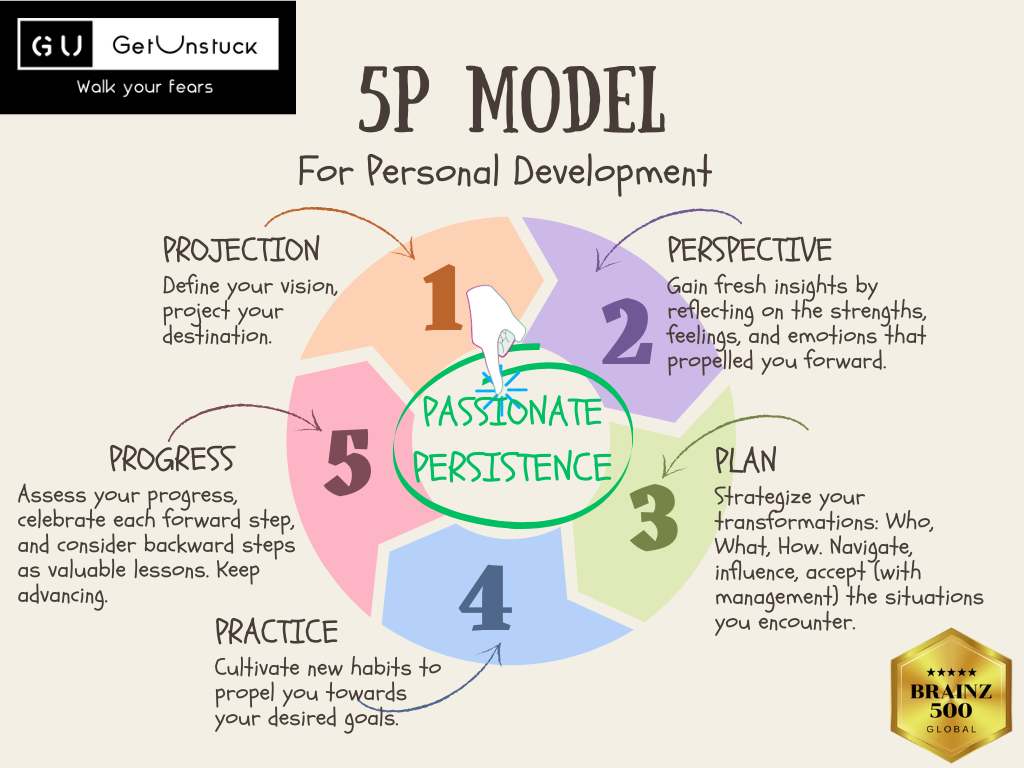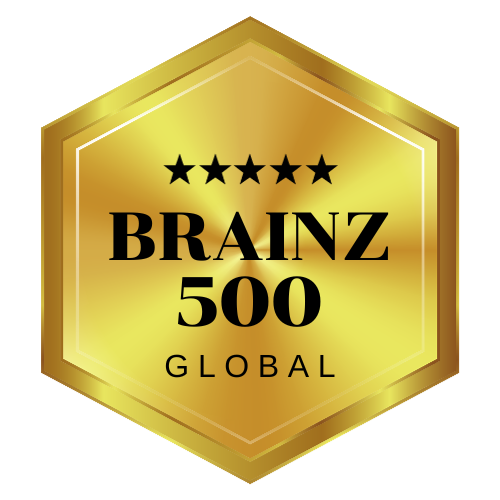Helping people and teams move forward — with clarity, courage, and purpose.
Corporate Programs
Bridging Strategy and Humanity.
Realign. Refocus. Lead with Impact.
Whether you're navigating growth, stress, culture shifts, or cross-functional strain — our tailored coaching labs help your team show up with clarity, cohesion, and renewed focus.
✅ Practical. Evidence-based. Human-centered.
I work with midlife leaders and mission-driven teams navigating complexity, pressure, motivation and reinvention.
I help leadership teams and cross-functional groups improve alignment, strengthen collaboration under pressure, and embed culture through action, so individuals and teams can reset, adapt, and move forward with clarity and purpose.
Leadership Alignment Lab
 My Philosophy
My PhilosophyLeading Through Growth
Leading through growth: Align strategy, priorities, and behaviors to lead with clarity through growth and change.
Objectives:
- Align senior leadership around shared goals, values, and strategy
- Strengthen decision-making,
- Collaboration and cultural clarity during growth
- Clarify individual and collective leadership roles to reduce friction
Approach:
- Discovery sessions with each leader
- 3–5 facilitated labs with interactive coaching and shared reflection
- Alignment mapping and shared commitments to culture and behavior
Outcome:
- Stronger alignment on purpose, priorities, and performance levers
- Improved clarity of roles and communication across leadership
- Renewed trust and shared vision to lead through complexity
Resilience Reset
 My Philosophy
My PhilosophyFrom Surviving to Adapting
Stepping back to move forward.
framing stress and reconnect to what matters most.Objectives:
- Help teams build a healthier relationship with pressure and change
- Create shared language around stress, resilience, and agency
- Embed proactive habits for emotional regulation and team health
Approach:
- Interactive kickoff and self/team reflection
- 3-part series blending team coaching and applied learning
- Tools from neuroscience, coaching, and systems thinking
Outcome:
- Shift from reactive to responsive mindsets
- Improved self-awareness and resilience strategies
- Sustainable habits that support well-being and adaptability
Thriving Under Pressure
 My Philosophy
My PhilosophyCross-Functional Team Coaching
Helping teams to harness pressure as
fuel for performance: build habits of
focus, recovery, and resilience.Objectives:
- Strengthen psychological safety and reduce siloed tension
- Improve team resilience and emotional agility
- Transform stress into a lever for growth and collaboration
Approach:
- Discovery interviews and climate snapshot
- 4–6 coaching sessions focused on mindset, behavior, and pressure points
- Optional micro-workshops on stress, communication, and boundaries
Outcome:
- Enhanced collaboration under pressure
- Tools to reframe stress and increase adaptability
- Shared team norms and agreements that build trust and performance
Culture in Action
 My Philosophy
My PhilosophyBuilding Team Habits That Stick
Helping teams to translate values and intent into consistent behavior: bridging the “knowing-doing” gap.
Objectives:
- Turn stated values into daily team behaviors
- Improve accountability, ownership, and consistency
- Close the gap between leadership intention and lived experience
Approach:
- Culture audit and team behavior inventory
- 3–4 sessions to co-create behavioral commitments and feedback loops
- Final workshop to align team rituals and track consistency
Outcome:
- Clear, observable behaviors that reflect team values
- Improved peer accountability and culture stewardship
- A stronger, healthier team culture in action — not just on posters
Individual Programs
Transform your life by embracing the courage to change and the wisdom to learn.
Feeling Stuck? It’s Time to Move Forward.
Whether you're navigating a career crossroads, life transition, or just know something needs to shift — this coaching journey is designed to help you reconnect with your purpose, regain momentum, and take meaningful action.
✅ Structured support. Deep reflection. Real progress.
Those tailored coaching programs are designed to meet your unique needs and aspirations.
By understanding your individual goals, challenges, and strengths, I craft personalized strategies that drive real progress.
My programs blend proven methodologies with a flexible approach, ensuring you receive the support and guidance necessary to achieve lasting results.
Whether you're seeking personal growth, professional development, or specific skill enhancement, my customized coaching plans provide the roadmap to your success.
Wellbeing
 My Philosophy
My PhilosophyWellbeing coaching is a personalized, client-centered approach focused on enhancing an individual's overall health and happiness. It involves a collaborative relationship between the coach and the client, where the coach helps the client:
- Identify personal goals related to physical, mental, emotional, and sometimes spiritual wellbeing.
- Engage in supportive dialogue to explore challenges and opportunities.
- Set realistic and actionable plans for achieving these goals.
- Develop strategies to overcome obstacles and build sustainable habits.
- Foster growth and improve the quality of life through various techniques from positive psychology, health coaching, and life coaching.
Self-Discovery
 My Philosophy
My PhilosophySelf-discovery in coaching refers to the process through which clients gain deeper insights into their true selves, including their values, beliefs, strengths, weaknesses, desires, and goals.
This journey of self-exploration is facilitated by the coach and involves several key components:
- Reflection: Encouraging clients to reflect on their experiences, behaviors, and emotions to better understand their motivations and patterns.
- Questioning: Using powerful, open-ended questions to help clients explore their thoughts and feelings, often revealing hidden aspects of their identity.
- Awareness: Helping clients become more aware of their internal processes, such as self-talk, emotional responses, and subconscious beliefs.
- Values Clarification: Assisting clients in identifying and understanding their core values, which guide their decisions and actions.
- Strengths and Weaknesses: Supporting clients in recognizing their unique strengths and areas for improvement, fostering a balanced self-view.
- Vision and Goals: Guiding clients to envision their desired future and set meaningful, aligned goals that reflect their authentic self.
Through self-discovery, clients gain a clearer sense of who they are, which empowers them to make informed decisions, pursue fulfilling goals, and live more authentically.
HERE is a reflection on my personal journey
Resilience
 My Philosophy
My PhilosophyCoaching for resilience is a specialized form of coaching aimed at helping individuals develop the ability to effectively navigate and recover from challenges, stress, and adversity. This type of coaching focuses on building mental, emotional, and sometimes physical resilience through various strategies and techniques. Key components include:
- Emotional Regulation: Teaching clients techniques to manage and process their emotions, such as mindfulness, meditation, and stress reduction practices.
- Positive Mindset: Encouraging a growth mindset and helping clients reframe negative thoughts and beliefs to foster optimism and resilience.
- Problem-Solving Skills: Enhancing clients' ability to identify problems, generate solutions, and make decisions under pressure.
- Coping Strategies: Equipping clients with tools and methods to cope with stress, setbacks, and unforeseen challenges.
- Self-Awareness: Helping clients understand their triggers, stress responses, and personal resilience factors.
- Support Systems: Encouraging clients to build and maintain strong support networks, including relationships with family, friends, and colleagues.
- Goal Setting: Assisting clients in setting realistic, achievable goals that contribute to their resilience and overall wellbeing.
- Adaptability: Promoting flexibility and the ability to adapt to changing circumstances, which is crucial for maintaining resilience in the face of adversity.
Through resilience coaching, individuals can develop a stronger foundation to withstand life's challenges, maintain a positive outlook, and recover more quickly from difficulties, ultimately leading to a more balanced and resilient life.
Personal Growth
 My Philosophy
My PhilosophyPersonal growth coaching is a process designed to help individuals reach their fullest potential by focusing on self-improvement and personal development. This type of coaching supports clients in identifying and achieving their personal and professional goals, enhancing self-awareness, and fostering continuous growth.
Key aspects of personal growth coaching include:
- Goal Setting: Assisting clients in defining clear, meaningful, and achievable goals that align with their values and aspirations.
- Self-Discovery: Guiding clients through a journey of self-exploration to uncover their strengths, weaknesses, passions, and areas for development.
- Skill Development: Helping clients build and enhance skills necessary for personal and professional success, such as communication, time management, and leadership.
- Mindset Shift: Encouraging a growth mindset, where clients view challenges as opportunities for learning and development rather than obstacles.
- Accountability: Providing support and accountability to help clients stay committed to their goals and make consistent progress.
- Action Plans: Collaborating with clients to create actionable steps and strategies to achieve their personal growth objectives.
- Overcoming Barriers: Assisting clients in identifying and addressing internal and external obstacles that may hinder their progress.
- Building Confidence: Helping clients develop self-confidence and self-efficacy through positive reinforcement and achievement of incremental successes.
- Life Balance: Supporting clients in achieving a balanced life, where personal and professional aspects are aligned and mutually reinforcing.
Personal growth coaching empowers individuals to make intentional changes, improve their quality of life, and continuously evolve towards their ideal selves.
HERE is a Model I developed
Bridging Worlds
 My Philosophy
My PhilosophyIntercultural communication coaching is a specialized form of coaching aimed at improving an individual's ability to effectively communicate and interact with people from different cultural backgrounds.
This type of coaching focuses on enhancing understanding, reducing misunderstandings, and fostering respectful and productive interactions in diverse cultural settings. Key aspects of intercultural communication coaching include:
- Cultural Awareness: Educating clients about different cultural norms, values, and practices to increase their awareness and sensitivity.
- Communication Skills: Developing verbal and non-verbal communication skills that are effective and appropriate in various cultural contexts.
- Empathy and Open-Mindedness: Encouraging clients to approach intercultural interactions with empathy, curiosity, and an open mind.
- Conflict Resolution: Teaching strategies to manage and resolve conflicts that may arise due to cultural misunderstandings or differences.
- Adaptability: Helping clients become more flexible and adaptable in their communication styles to suit different cultural scenarios.
- Cultural Intelligence (CQ): Building the client's capacity to relate and work effectively across cultures, often involving knowledge, mindfulness, and behavioral skills.
- Effective Listening: Enhancing active listening skills to better understand and respond to individuals from different cultural backgrounds.
- Business Etiquette: Providing guidance on culturally appropriate business practices, etiquette, and protocols.
- Bias Awareness:Helping clients recognize and address their own cultural biases and stereotypes that may affect their interactions.
- Global Competence: Preparing clients for international assignments, travel, or work in multicultural teams by equipping them with the necessary skills and knowledge.
Intercultural communication coaching is beneficial for individuals and organizations seeking to thrive in a globalized world, where effective cross-cultural communication is essential for success and harmony.
HERE is an article I wrote on the subject
Harmony in Dispute
 My Philosophy
My PhilosophyHarmony in dispute coaching focuses on facilitating peaceful resolution and constructive management of conflicts or disputes between individuals or groups.
The goal is to achieve harmony or a sense of balance through communication, understanding, and collaboration rather than escalating tensions or resorting to adversarial approaches. Key principles and techniques in harmony in dispute coaching include:
- Communication Skills: Teaching effective communication techniques such as active listening, empathy, and clear expression to promote understanding and reduce misunderstandings.
- Conflict Resolution Strategies: Providing clients with tools and methods to manage and resolve conflicts in a constructive manner, emphasizing win-win solutions where possible.
- Mediation Techniques: Coaching clients in mediation skills to facilitate negotiations and discussions between parties in conflict, helping them find common ground and reach agreements.
- Emotional Intelligence: Enhancing emotional intelligence to manage emotions effectively during disputes, promoting self-awareness and empathy towards others' perspectives.
- Problem-Solving: Encouraging a problem-solving approach to conflicts, focusing on identifying underlying issues, exploring options, and generating mutually beneficial solutions.
- Building Trust and Rapport: Assisting clients in building trust and establishing rapport with others involved in the dispute, creating a conducive environment for resolution.
- Cultural Sensitivity: Recognizing and addressing cultural differences or sensitivities that may influence the conflict, promoting respect and inclusivity in the resolution process.
- Post-Conflict Support: Providing support and guidance to clients after resolution to ensure agreements are upheld and relationships are maintained or repaired.
Harmony in dispute coaching aims to transform conflict into opportunities for growth, understanding, and strengthened relationships, fostering a harmonious environment in personal, professional, or organizational settings.
HERE is an article I wrote on the subject
Career Building
 My Philosophy
My PhilosophyCareer building coaching is a specialized form of coaching that focuses on helping individuals strategically manage and advance their careers.
It involves a structured process of assessing career goals, identifying strengths and weaknesses, and developing actionable plans to achieve professional success. Key components of career building coaching include:
- Self-Assessment: Helping clients assess their skills, interests, values, and personality traits to identify suitable career paths and goals.
- Goal Setting: Assisting clients in setting clear, realistic, and achievable career goals aligned with their aspirations and values.
- Career Planning: Developing personalized career plans that outline steps, timelines, and resources needed to achieve career objectives.
- Skill Development: Identifying and addressing skill gaps through training, education, or practical experience to enhance professional competence.
- Networking: Providing strategies and techniques for building and maintaining professional networks, connecting with mentors, and accessing opportunities.
- Job Search Strategies: Advising clients on effective job search techniques, including resume writing, interviewing skills, and leveraging online platforms.
- Career Transitions: Supporting clients through career transitions such as job changes, promotions, or shifts to new industries or roles.
- Personal Branding: Helping clients develop and promote their personal brand through effective communication, online presence, and reputation management.
- Leadership Development: Coaching clients on leadership skills, decision-making, and managing teams to advance their career progression.
- Work-Life Balance: Promoting strategies for maintaining a healthy work-life balance and managing stress to sustain long-term career success and satisfaction.
Career building coaching aims to empower individuals to take proactive steps towards achieving their career aspirations, enhancing their professional development, and navigating challenges effectively in a competitive job market.

2023

2024

2025

